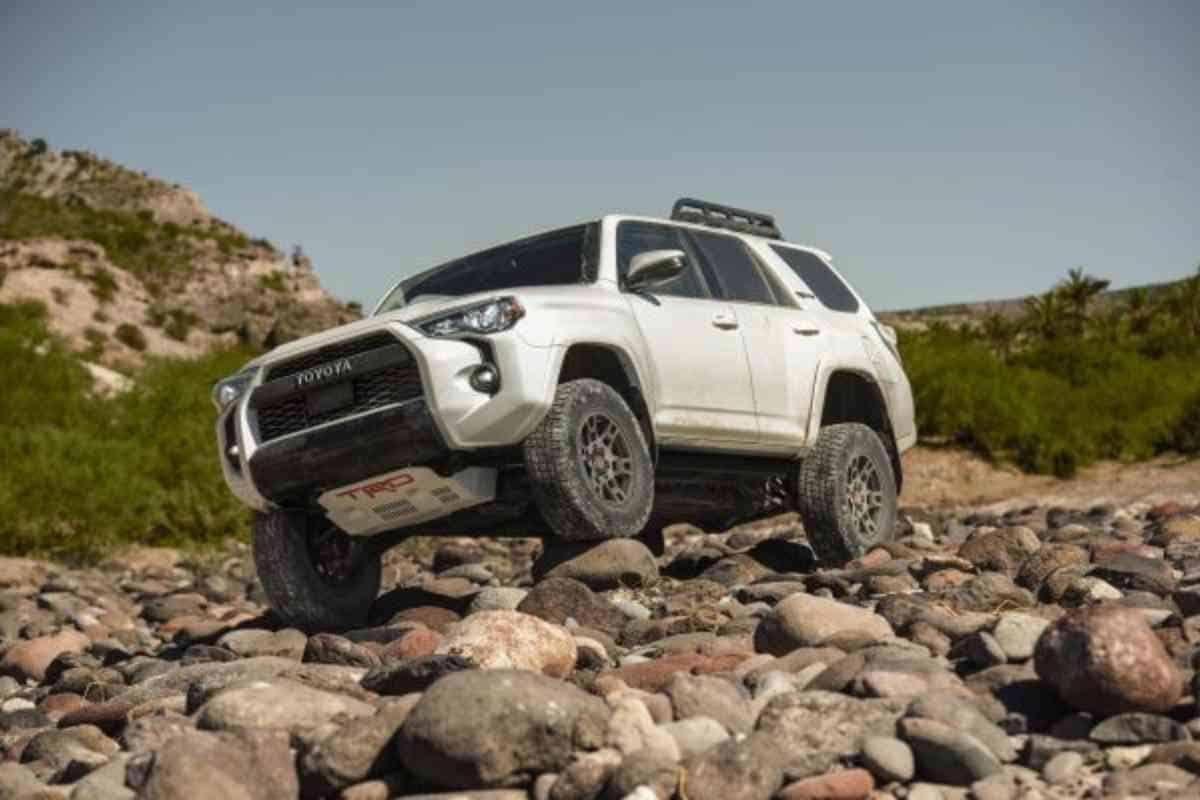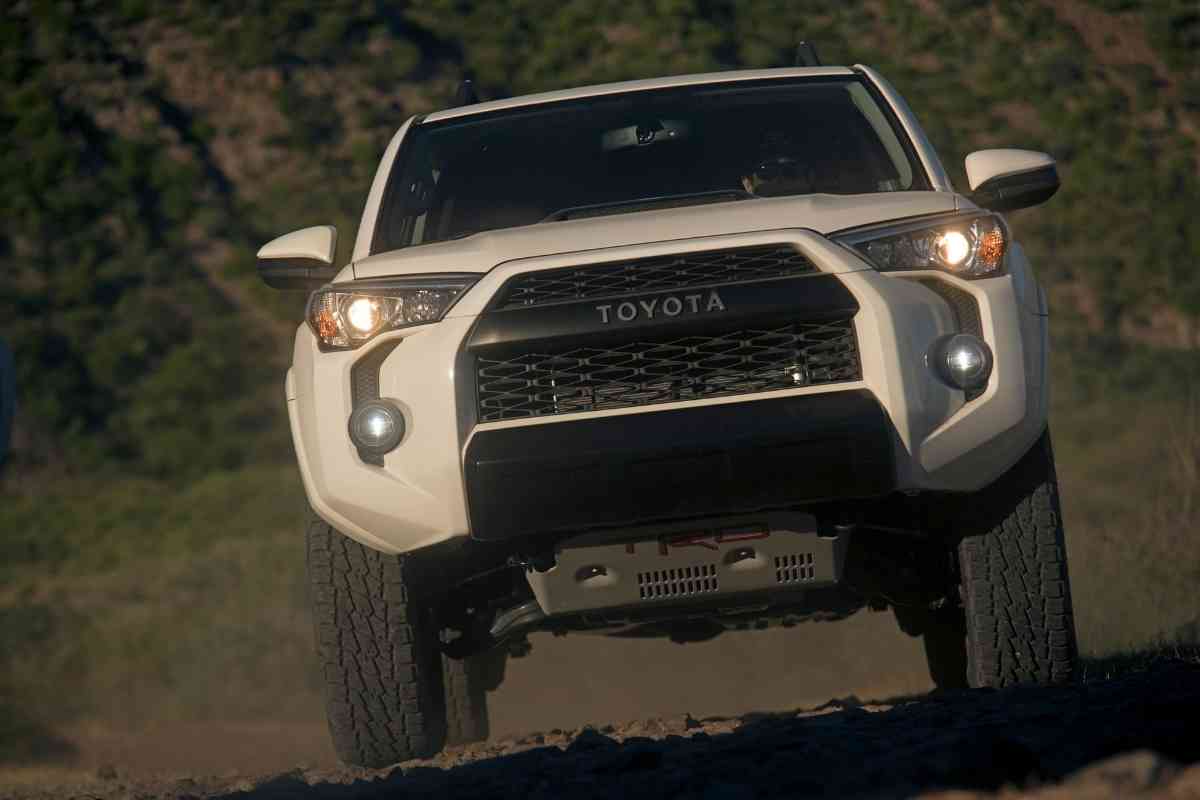Does Lifting Your 4Runner Void Warranty? 5 Essential Questions Answered!
Aftermarket parts are a great way to customize your vehicle to best suit your needs.
If you plan to spend a lot of time on rocky trails, for example, a lift kit may be a way for you to lift the body of your 4Runner up just enough to give you a bit of added clearance.
However, not all modifications are the same in the dealer’s eyes. So, does lifting your 4Runner void warranty with the dealer? Let’s find out.

Does Lifting Your 4Runner Void Warranty?
Adding a lift kit to your 4Runner will not void the warranty. Many dealerships will tell you that any aftermarket parts will void the warranty if it is not installed by the dealership, but this is simply not true.
If you are interested in installing a lift kit on your 4Runner and have some questions about the process, safety, and warranty, then keep reading.
Why Should You Get A Lift Kit?
The Toyota 4Runner is already a great vehicle for hitting the trails.
It is a mid-sized SUV with plenty of features that make it a good option for off-roading.
Toyota even offers a trim package called the 4Runner Trail, which comes with better wheels, roof basket, LED headlamps, and an exclusive Army Green color.
Performance-wise, the Toyota 4Runner enjoys 270 horsepower and a towing capacity of 5000 lbs.
Built for off-road, the 4Runner comes standard with 9.8” of ground clearance and an approach angle of 33 with a departure angle of 26.
But what if that isn’t enough?
If you plan on going over some serious rocks or rough terrain, the standard 4Runner may not have enough clearance for you.
That’s where the lift kit comes in.
Simply put, a lift kit will lift the body of your 4Runner a few extra inches off the ground.
That may not seem like much, but it can make all the difference on a rough trail.
There are two main types of lift kits, both with their own pros and cons.
There are body kits and suspension kits. Before we answer the question, “Does lifting your 4Runner void warranty with the dealer?”, let’s find out how they differ.
Body Kits

Body lift kits are among the most common type of lift kits available.
They are also the simplest to install.
Vehicles are often made of what is called a body over frame construction.
What a body kit does, is add spacers between the body of the car and the frame.
This, in turn, lifts the body up a little bit.
With this type of lift, the frame will be more visible from the bottom of the vehicle.
While many people keep the frame visible, some opt to purchase additional gap guards, which hide the frame a little better.
This extra space between the frame and body gives the driver the option to install larger tires.
The combined effort gives great ground clearance and more rugged tires that are meant for surviving the trails.
Some pros to body kits are that they tend to be less expensive than suspension kits and are easier to install.
Some cons are that if you don’t like the look of the exposed frame, gap guards are an added expense, plus a body kit can only lift a 4Runner a maximum of 3 inches.
Suspension Kits
Suspension kits are different, instead of lifting the body from the frame.
They instead lift the entire vehicle from the suspension.
The way this is done varies depending on the lift kit itself and the design of the suspension.
While body kits are limited to a maximum of three inches, suspension kits can lift a vehicle much higher if the driver wants that.
As the entire car is lifted up, there often isn’t any detriment to the driving quality.
Some drivers even report an improved experience.
Some pros to the suspension kits are that they offer higher clearance, and you won’t be left with an unsightly frame visible under the body of the vehicle.
Some cons to suspension kits are they are often more complicated, more expensive, and more complicated to install overall.
Depending on the height of the lift, it can also make your vehicle harder to get in and out of.
Does Installing A Lift Kit Void The Warranty?
So, does lifting your 4Runner void warranty with the dealer? As mentioned in the intro, in general, no. However, there are some caveats to consider first.
In general, installing a lift kit will not void your warranty.
In the United States, this falls under the Magnuson Moss Warranty Act (US Code – Title 15, Chapter 50, Sections 2301-2312).
The Warranty Act states that no aftermarket parts will void your warranty so long as said aftermarket parts don’t contribute to the failure of your vehicle.
Some dealerships may refuse to honor your warranty if you have aftermarket parts.
However, if the aftermarket parts (such as a lift kit) are not the reason why the vehicle was brought into the dealership in the first place, then you can escalate your warranty claim.
If the dealership tries to deny your warranty, your first option would be to contact the EPA.
If the EPA also denies your warranty, you can contact the FTC.
There is a catch to this, however. This is generally true given that your lift kit is of good quality and installed properly.
So, before asking “does lifting your 4Runner void warranty with the dealer?“, it’s essential to do some research on the type of lift.
To ensure that you don’t void your warranty, it is highly recommended that you purchase your lift kit from a reputable manufacturer and that you have it installed by a trained professional.
A trained professional does not necessarily need to be the dealership, but it needs to be someone who knows what they are doing.
Otherwise, a shotty install job may cause premature damage to your vehicle and actually void the warranty in the process.
Are Lift Kits Safe?
Lift kits can be perfectly safe, given that you have followed a couple of precautions.
First, purchase the lift kit from a reputable manufacturer with a good reputation.
Second, have the lift kit installed by a skilled professional.
These two steps alone will avoid any injuries from low-quality parts, makeshift lifts, or poor installation.
Another thing to consider with the safety aspect is rolling.
When a vehicle has a high lift installed, most of the 4Runner’s weight rises with it.
With that, your chances of rolling the vehicle are increased.
That being said, only install the size lift you need, and try not to be tempted to add a rise that is truly outrageous.
So, does lifting your 4runner void warranty with the dealer? No. But, it can make it unsafe.
Are Lift Kits Legal?
For the most part, yes. This depends largely on where you live, however.
If you live in the states, it is recommended that you look up your State’s laws when it comes to lifting your 4Runner.
Some states, such as Arkansas, don’t have any limitations on vehicle modifications.
Some other states measure the limit of a lift by how high the front bumper is off the ground.
Such an example is Indiana which limits bumpers to be no higher than 30 inches off the ground.
There are slightly more strict states, like Massachusetts, that limits lifts to a maximum of two inches.
Even in these states, a two-inch lift combined with larger tires can give you plenty of ground clearance for some rock crawling.
So, there you have. We answered the question, “does lifting your 4runner void warranty at the dealer?” No, it doesn’t but you should consider several critical aspects for a safe modification.
